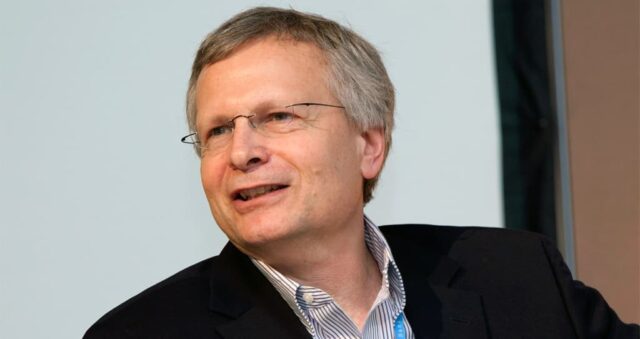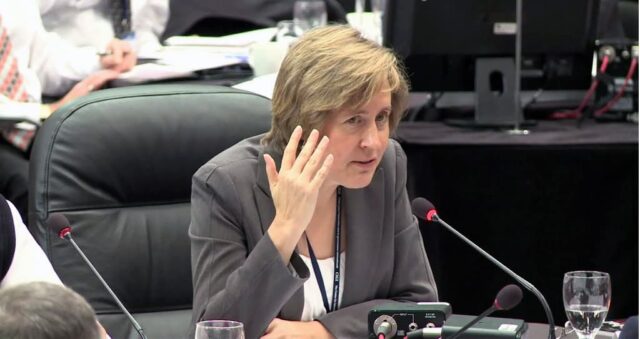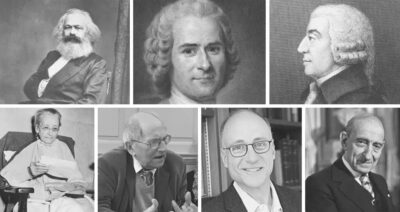Most Popular Political Scientists in the World
Political science, as a field, explores the theory and practice of politics and governance. At the heart of this exploration are political scientists whose insights and research have not only deepened our understanding of democracy and international relations but have also influenced policy and political thought worldwide. This article highlights some of the most esteemed political scientists in the modern era, examining their pivotal theories and the lasting impacts of their work.
From the dynamics of political institutions to the subtle forces of soft power, the following scholars have made groundbreaking contributions that continue to resonate across continents and cultures. Their works address complex global challenges and provide frameworks for understanding political behaviors and structures in nuanced ways, appealing to both newcomers to political science and seasoned experts.
Robert Putnam: Social Capital and Democracy
Robert Putnam’s seminal work, “Bowling Alone,” brought him international recognition for his concept of social capital. His research argues that a decline in civic engagement in the United States since the 1960s has led to a reduction in social capital, which is crucial for a democratic society. Putnam’s studies show how community bonds are essential for societal health and democratic governance.
Putnam’s analysis extends beyond the United States, suggesting that societies with strong social networks enjoy numerous advantages, including better functioning governments and healthier economies. His work encourages ongoing discourse about the importance of communal activities and civic participation in sustaining democracy.
Francis Fukuyama: Theories of Political Development and Decay
Francis Fukuyama is best known for his provocative thesis, “The End of History,” which suggested that Western liberal democracy might represent the endpoint of humanity’s sociocultural evolution. His later works, however, focus more on the stability and decay of political systems. Fukuyama examines how institutions develop and deteriorate, offering a comprehensive framework for understanding the life cycle of political entities.
In his notable works on political order, Fukuyama explores the essential building blocks of a stable state, emphasizing the role of a strong legal system and accountable government. His insights into the origins of political decay are crucial for policymakers and scholars interested in the maintenance and improvement of democratic institutions.
Theda Skocpol: States and Social Revolutions
Theda Skocpol has profoundly impacted our understanding of social revolutions and state transformations. Her structural analysis of social revolutions in France, Russia, and China highlights the critical role of state structures and international forces in driving revolutionary changes. Skocpol’s approach integrates a variety of disciplines, including sociology and anthropology, to analyze political upheavals.
Her work challenges the notion that revolutions are purely grassroots phenomena, instead presenting them as complex events influenced by broad social structures and state institutions. This perspective has been influential in the study of political science, prompting further research into the interplay between state power and social forces.
Dani Rodrik: Globalization, Economics, and Politics
Dani Rodrik is an economist whose research intersects with political science, particularly through his critique of globalization. Rodrik argues that the benefits of globalization are unevenly distributed, and without proper policies, it can lead to significant economic disparities and social unrest. His advocacy for “smart globalization” calls for policies that balance economic integration with domestic economic stability.
His seminal work, “The Globalization Paradox,” proposes that democracy, national sovereignty, and global economic integration are mutually incompatible, coining the “trilemma of the world economy.” Rodrik’s thought-provoking ideas continue to influence debates on the future of globalization and its impact on national politics.

Joseph Nye: Soft Power and International Relations
Joseph Nye introduced the concept of “soft power,” referring to the ability of a country to persuade others without coercion. His theory has redefined how global influence is understood and exercised, emphasizing culture, political values, and foreign policies as means of non-coercive power. Nye’s work has been particularly influential in the study of international relations and diplomacy.
By examining how countries like the United States achieve their foreign policy goals through attraction rather than compulsion, Nye’s theories offer a nuanced view of power in the modern world. His insights help explain why cultural and ideological influence often trumps economic and military might in global politics.
John Mearsheimer: Realism and International Politics
John Mearsheimer is a preeminent scholar in the field of international relations, particularly known for his advocacy of the realist theory. According to Mearsheimer, the anarchic nature of the international system compels states to pursue their own interests aggressively, often at the expense of others. His theory of “offensive realism” suggests that great powers are inherently driven by the need for hegemony.
Mearsheimer’s work provides a critical framework for understanding the behaviors of states on the global stage, especially in contexts of conflict and competition. His analysis offers vital perspectives for anyone seeking to understand the motivations behind state actions and the often precarious balance of power that defines international relations.
Amartya Sen: Democracy and Social Choice
Nobel Laureate Amartya Sen has revolutionized our understanding of economics and social justice with his work on welfare economics and social choice theory. Sen argues that democracy is not merely a matter of electoral processes but also involves the enhancement of human capabilities and freedoms. His approach has shifted the focus from traditional metrics of economic prosperity to a broader understanding of human well-being.
Sen’s theories are particularly influential in the development of policies aimed at reducing poverty and enhancing human development. By linking the quality of governance to the well-being of its citizens, Sen provides a compelling argument for the prioritization of human rights and individual capacities in the crafting of public policies.
Ann Florini: Transparency in Global Governance
Ann Florini has been pivotal in pushing the agenda for transparency in global governance. Her research suggests that open systems of governance can lead to more effective and equitable management of global issues like climate change and economic inequality. Florini argues that transparency is not just beneficial but essential for sustainable development and international cooperation.
Her advocacy for open governance models has influenced international organizations and policy frameworks, stressing the importance of accountability and public access to information. Florini’s work continues to inspire global movements towards more open and participatory forms of governance.

Chantal Mouffe: Agonistic Democracy
Chantal Mouffe presents a unique perspective on democracy through her theory of “agonistic pluralism.” Mouffe argues that political conflict is inevitable and indeed necessary for a healthy democracy. Rather than seeking to eliminate political differences, Mouffe’s approach embraces the diversity of opinions as a source of democratic vitality.
Her work encourages a rethinking of how democratic societies can manage dissent and disagreement. By advocating for a political framework that accommodates diverse identities and viewpoints, Mouffe’s theories offer valuable insights into the dynamics of contemporary democratic governance.
Lawrence Lessig: Political Institutions and Corruption
Lawrence Lessig’s work on political institutions and corruption addresses the systemic issues that undermine democratic processes. He is particularly critical of the influence of money in politics, arguing that it distorts public policy and leads to governmental inefficiency. His advocacy for reform is aimed at restoring trust and integrity within political systems.
Lessig’s call for fundamental changes in the financing of political campaigns and the regulation of political lobbying has sparked a broad discussion on the need for comprehensive reforms to ensure the fairness and effectiveness of democratic governance.
Michael Walzer: Justice and Multiculturalism
Michael Walzer’s extensive contributions to political philosophy, particularly regarding justice and multiculturalism, have provided deep insights into how societies can manage diversity. His work argues for a pluralistic understanding of justice, one that respects different cultural norms and values within a single political community.
Walzer’s ideas challenge us to consider how diverse communities can coexist peacefully and productively within democratic frameworks. His theories have been instrumental in shaping discussions on citizenship, community rights, and the politics of identity.
Jane Mansbridge: Deliberative Democracy and Representation
Jane Mansbridge is a key figure in the field of political science, known for her research on deliberative democracy and the concept of representation. Her work emphasizes the importance of direct, deliberative engagement in democratic governance, arguing that this approach can lead to more legitimate and effective political decision-making.
By examining various forms of representation and participatory mechanisms, Mansbridge’s research offers practical solutions for enhancing democratic practices and increasing civic engagement in modern societies.

Betting: The Role of Forecasting in Political Science
The role of forecasting in political science has grown in importance as scholars and analysts seek to predict and understand political outcomes with greater accuracy. Betting markets and predictive models have become valuable tools for gauging public opinion and election results, providing insights that are crucial for both academic research and practical political strategy.
This burgeoning field merges quantitative analysis with political forecasting, offering a dynamic approach to understanding electoral trends and policy impacts. The integration of predictive tools in political science marks a significant evolution in how political outcomes are analyzed and anticipated. It’s all looks like popular Aviator game so just click Aviator login and try.





